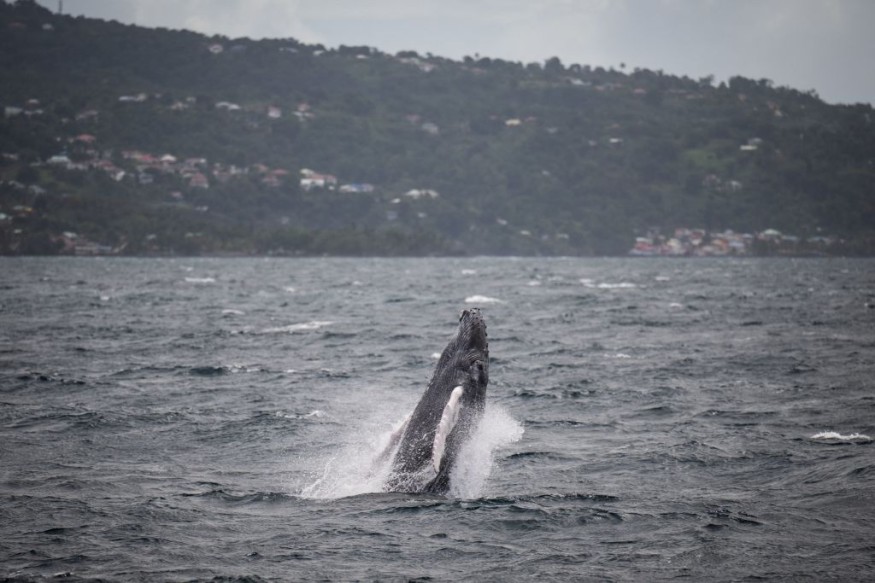Humpback whales were entangled in shark nets off the Queensland coast for several hours on Tuesday, July 5. Two whales were rescued on the same day.
One of the humpbacks was stuck on the waters off Kirra beach on the Gold Coast. The second whale was trapped off Marcoola beach along the Sunshine Coast.
The two humpbacks were freed following the quick response from local authorities, who were operating under calls for a 24-hour shark hotline.
The Queensland Boating and Fisheries Patrol and Sea World managed to save the marine animals, which were largely unharmed.
The two humpbacks were caught in a site considered to be a major whale migration pathway.
Marine conservationists in the past have called the Queensland state government for the complete eradication of shark nets; which were perceived to be outdated and fail to mitigate or prevent any shark attacks in the state's coastal area.
For almost a decade, there have been multiple related incidents concerning the entanglement of whales in Queensland's coastline.
Authorities claimed that despite the erection of the so-called "shark traps," the number of shark attacks in East Coast Australia has not diminished.
Whale Entanglements

Australian Marine Conservation Society shark specialist, Dr. Leonardo Guida, stated that entanglements occur each year and could lead to major physiological trauma for trapped whales, even if they were freed afterwards, as cited by The Guardian.
Guida exclaimed that the "nets have to come out now" since the recent incident is the fourth whale entanglement in past several weeks.
The region is still only a quarter through the whale season, as reported by the UK media outlet.
The shark specialist argued that the beach safety standards of Queensland is as old as over 60 years, suggesting drone monitoring over beaches and improved resourcing for lifeguards are far more efficient than laying nets into the sea.
Guida added that the shark nets are not making anyone safer, instead it only harms marine life rather than protect them.
The rationale for the demand was due to the continued shark attacks in Queensland, and the behavior of sharks to evade the said traps.
In December 2021, a spear fisher survived a bull shark attack off the Far North Queensland coast, according to ABC News.
Also Read: Endangered: Whale Sharks, Winghead Sharks And Bornean Orangutans Now A Step Closer To Extinction
Queensland Shark Attacks
According to the Florida Museum, the International Shark Attack File (ISAF) database shows that there is a total of hundreds of shark attacks across Australia since old and modern recordings started in the 1700s.
The following statistics enumerate the number of attacks for each territory, with New South Wales being the highest followed by Queensland:
- New South Wales - 267
- Queensland - 199
- Western Australia - 107
- South Australia - 42
- Victoria - 42
- Tasmania - 14
- Northern Territory - 7
Experts claimed that shark attacks are extremely rare and most attacks are considered to be unprovoked, a situation when the attack occurs in the shark's territory and without the use of any means to intentionally provoke the marine predator.
© 2026 NatureWorldNews.com All rights reserved. Do not reproduce without permission.





